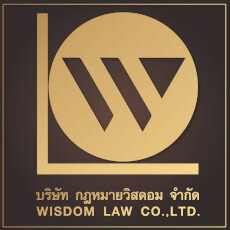Best Biotechnology Lawyers in Bangkok
Share your needs with us, get contacted by law firms.
Free. Takes 2 min.
List of the best lawyers in Bangkok, Thailand
Legal guides written by Mahanakorn Partners Group Co., Ltd:
- Thailand Strengthens Anti-Money Laundering Laws with New Amendments
- Recent Updates to Thailand’s Long-Term Resident (LTR) Visa and SMART Visa Programs
- Managing Risks in Public-Private Partnership Projects
About Biotechnology Law in Bangkok, Thailand
Biotechnology is a rapidly growing industry in Bangkok, Thailand, with advancements in medicine, agriculture, and environmental conservation. As this industry continues to expand, the need for legal guidance and expertise in biotechnology law becomes crucial to navigate the complex regulatory landscape.
Why You May Need a Lawyer
There are various situations where individuals or companies in the biotechnology sector may require legal assistance, such as patent disputes, regulatory compliance, intellectual property protection, contract negotiations, and mergers and acquisitions. A lawyer with expertise in biotechnology law can provide valuable advice and representation to safeguard your interests.
Local Laws Overview
In Bangkok, Thailand, biotechnology laws are governed by the Department of Intellectual Property, the Food and Drug Administration, and the Ministry of Science and Technology. Regulations regarding biotechnology research, development, and commercialization may vary, so it is essential to stay informed and compliant with local laws to avoid legal implications.
Frequently Asked Questions
1. What are the key regulations governing biotechnology in Bangkok, Thailand?
The key regulations governing biotechnology in Bangkok, Thailand include the Biotechnology Law, the Patent Act, the Plant Varieties Protection Act, and the Food and Drug Act.
2. How can I protect my biotechnology inventions in Bangkok, Thailand?
You can protect your biotechnology inventions by filing for patents with the Department of Intellectual Property in Thailand. It is advisable to seek legal advice to ensure proper protection of your intellectual property.
3. Are there any restrictions on biotechnology research in Bangkok, Thailand?
There are regulations on conducting biotechnology research in Bangkok, Thailand, especially concerning genetically modified organisms (GMOs) and human subjects. It is essential to comply with these regulations to avoid legal issues.
4. What should I consider when entering into contracts in the biotechnology industry in Bangkok, Thailand?
When entering into contracts in the biotechnology industry in Bangkok, Thailand, you should consider intellectual property rights, confidentiality clauses, payment terms, liability provisions, and dispute resolution mechanisms. A lawyer can help draft and review contracts to protect your interests.
5. How can a lawyer help me in a biotechnology dispute in Bangkok, Thailand?
A lawyer with expertise in biotechnology law can represent you in negotiations, mediations, arbitrations, or court proceedings to resolve biotechnology disputes. They can provide legal advice, strategy development, and advocacy to achieve a favorable outcome.
6. What are the procedures for obtaining regulatory approvals for biotechnology products in Bangkok, Thailand?
The procedures for obtaining regulatory approvals for biotechnology products in Bangkok, Thailand may vary depending on the nature of the product. It is advisable to consult with legal experts who can guide you through the regulatory process and ensure compliance with all requirements.
7. What are the consequences of non-compliance with biotechnology laws in Bangkok, Thailand?
Non-compliance with biotechnology laws in Bangkok, Thailand can result in fines, penalties, injunctions, or even criminal prosecution. It is essential to adhere to legal requirements and seek legal assistance to mitigate any potential risks.
8. How can I navigate the intellectual property landscape in the biotechnology industry in Bangkok, Thailand?
Navigating the intellectual property landscape in the biotechnology industry in Bangkok, Thailand requires a deep understanding of patents, trademarks, copyrights, trade secrets, and licensing agreements. A lawyer specializing in biotechnology law can help you protect your intellectual property rights effectively.
9. Are there government incentives available for biotechnology companies in Bangkok, Thailand?
There are government incentives available for biotechnology companies in Bangkok, Thailand, such as tax incentives, research grants, and funding programs. It is advisable to explore these opportunities with the assistance of legal experts to maximize your benefits.
10. How can I stay updated on the latest developments in biotechnology law in Bangkok, Thailand?
You can stay updated on the latest developments in biotechnology law in Bangkok, Thailand by following industry news, attending seminars or conferences, and consulting legal experts. It is essential to stay informed to adapt to regulatory changes and emerging trends in the biotechnology sector.
Additional Resources
For legal advice and support in the field of biotechnology in Bangkok, Thailand, you can contact the Department of Intellectual Property, the Food and Drug Administration, the Ministry of Science and Technology, and law firms specializing in biotechnology law.
Next Steps
If you require legal assistance in biotechnology in Bangkok, Thailand, it is recommended to seek a lawyer with experience and expertise in this field. Schedule a consultation to discuss your specific needs, goals, and concerns, and work together to develop a tailored legal strategy to achieve the desired outcomes.
Lawzana helps you find the best lawyers and law firms in Bangkok through a curated and pre-screened list of qualified legal professionals. Our platform offers rankings and detailed profiles of attorneys and law firms, allowing you to compare based on practice areas, including Biotechnology, experience, and client feedback.
Each profile includes a description of the firm's areas of practice, client reviews, team members and partners, year of establishment, spoken languages, office locations, contact information, social media presence, and any published articles or resources. Most firms on our platform speak English and are experienced in both local and international legal matters.
Get a quote from top-rated law firms in Bangkok, Thailand — quickly, securely, and without unnecessary hassle.
Disclaimer:
The information provided on this page is for general informational purposes only and does not constitute legal advice. While we strive to ensure the accuracy and relevance of the content, legal information may change over time, and interpretations of the law can vary. You should always consult with a qualified legal professional for advice specific to your situation.
We disclaim all liability for actions taken or not taken based on the content of this page. If you believe any information is incorrect or outdated, please contact us, and we will review and update it where appropriate.












